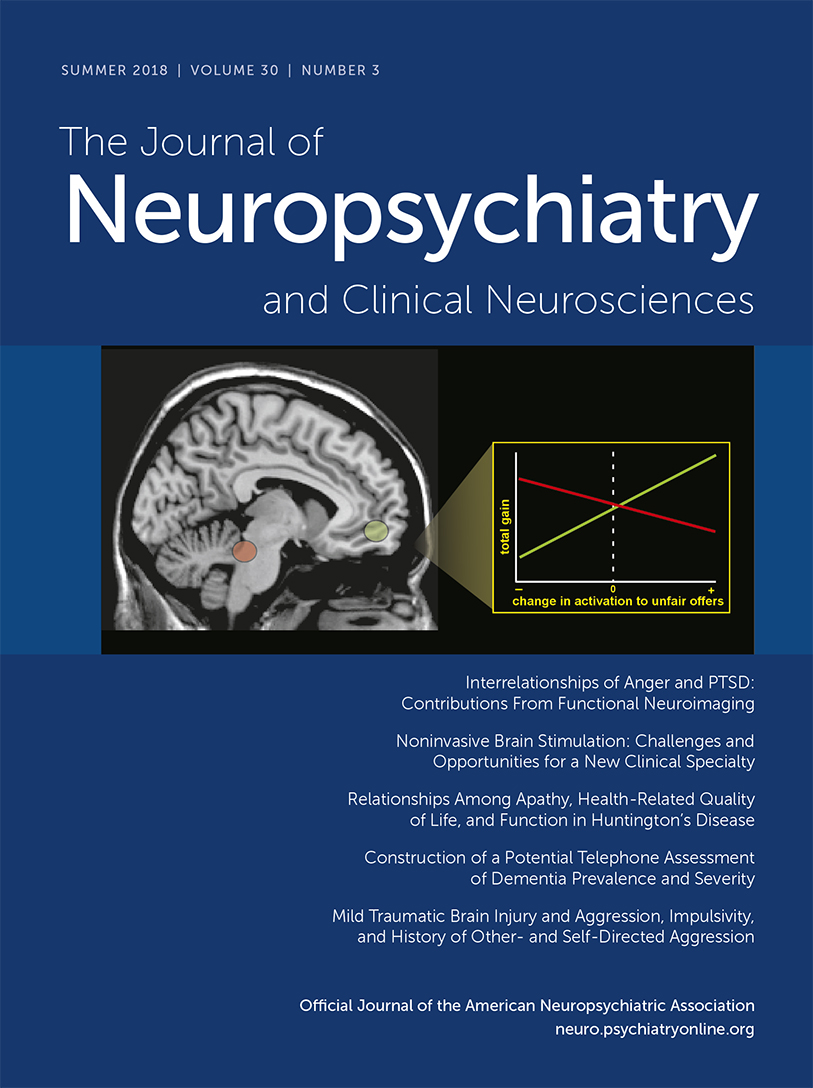Mild Traumatic Brain Injury and Aggression, Impulsivity, and History of Other- and Self-Directed Aggression
Abstract
Mild traumatic brain injury (mTBI) is highly prevalent, with an estimated occurrence in the United States of more than 1.3 million per year. While one consequence of mTBI is impulsive aggressive behavior, very few studies have examined the relationship between history of mTBI and aggressive behavior in impulsively aggressive individuals. The authors examined the relationship between history of mTBI in a healthy control group (HC; N=453), a control group with psychiatric disorders (PC; N=486), and individuals with intermittent explosive disorder (IED; N=695), a disorder of primary impulsive aggression. Results demonstrated that IED study participants were significantly more likely to have a history of mTBI (with or without history of a brief loss of consciousness [LOC]) compared with both HC and PC participants. A similar observation was made with regard to self-directed aggression (i.e., suicidal or self-injurious behavior), although group differences were only among those with mTBI with LOC. For both other- and self-directed aggression variables, the authors observed a stepwise increase in dimensional aggression and impulsivity scores across participants as a function of mTBI history. Given that impulsive aggressive behavior begins very early in life, these data are consistent with the hypothesis that lifelong presence of an impulsive aggressive temperament places impulsive aggressive individuals in circumstances that put them at greater risk for mTBI compared with other individuals with and without nonimpulsive aggressive psychopathology.



